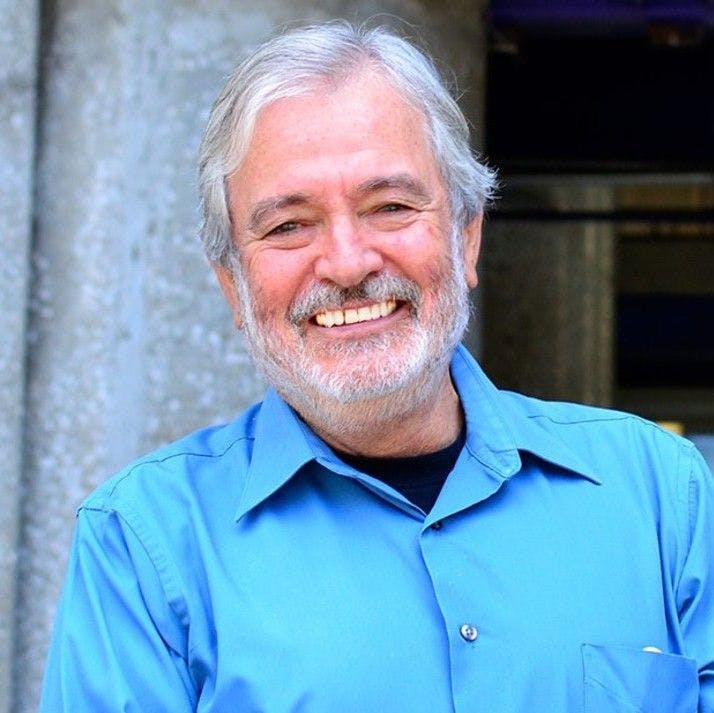

Pedro SaturnoAXA Chair for the Improvement of Healthcare Quality, Mexico
August 1, 2020
The need for coordination in health delivery
One of the key takeaways from the COVID-19 crisis is the need for better coordination within our healthcare systems.
3 minutes
Original Content: AXA Research Fund
Currently, our care systems in many countries are just too fragmented and complicated. People are shunted needlessly from one clinic or hospital to another. Our systems should be easy to navigate – no matter what your illness, your job or what kind of insurance you have. Universal coverage and right to health are still a mirage, but the need for it has been dramatically revealed by the pandemic. It should be one population, one health system in order for everyone to have equal access to health services.
Social services should also be a fully integrated part of the healthcare system – they are too important to be separate. During this pandemic, many countries have had very high death rates in nursing homes. We were failing to offer care to people who were, by definition, the most in need and yet were often outside the healthcare system.
We also need much more emphasis on prevention. That means stronger primary healthcare and community networks that make it easier to detect health issues before they become too serious. In many cases, while the pledge to make healthcare a priority is made public, this commitment is not translated into spending. How can it be a priority, if you keep it under-resourced? It is only when a crisis happens – like the current pandemic – that you begin to realize the serious shortcomings you have in your healthcare system.
We are too focused on treating disease rather than preventing it. In the current crisis, as we have underinvested in preventing this type of pathogen. It is now in circulation, with the only option currently available to the population being preventative measures, like social-distancing and hand washing, and critical care for those in need. It is shocking, though, that these measures are rather out of reach for the more disadvantaged people and countries.
We also need much more emphasis on prevention. That means stronger primary healthcare and community networks that make it easier to detect health issues before they become too serious.
Universal coverage and right to health are still a mirage, but the need for it has been dramatically revealed by the pandemic. It should be one population, one health system in order for everyone to have equal access to health services.
Lab tests were restricted or suspended in many places, as well as regular visits....Undoubtedly, we will see the consequences of this over the coming months and years.
This lack of prevention also applies to most countries, which had no contingency plans in place for this type of pandemic. As a result, there was too much improvisation with priorities being decided as the pandemic unfolded. These countries realized, mid-pandemic, that they had to do more to protect health professionals. By then, 20% of these health professionals were already infected. Some countries were also forced to ration care and there was neither an explicit ethical orientation for doing it nor a plan for those suffering from chronic diseases, who need continuous control for their conditions. For instance in Mexico, like in other countries, diabetes patients were given medication for two or three months, but nothing was in place for guaranteeing checks or follow-ups. Lab tests were restricted or suspended in many places, as well as regular visits. Children with cancer go untreated because their families are too afraid to take them to hospital. Undoubtedly, we will see the consequences of this over the coming months and years.
Asian countries that did well containing COVID had experience previously with SARS, but they also had resources. Developing countries don’t have the same resources. In these countries, the virus will stay longer, and the effect over the medium term will be worse. We see the same phenomenon in developed countries: where people are poorer, or more socially disadvantaged, the impact is worse.
We moreover need to realize that we do not exist in isolation and are part of a much wider environment, whose health strongly impacts our own. This crisis shows the utmost importance of a One Health
approach to prevention. We must pay attention not just to our own healthcare systems, but also to the health of animals and the environment – the current emergence of a zoonosis shows the importance of this conjoint management. COVID-19 is clearly a One Health
problem.
The improvisation of pandemic management in spite of the risk being high, the lack of healthcare integration and of attention to the link between environmental and human health is now resulting in governments spending billions in supporting the economy. Hopefully, they will learn from this – and prepare better for preventing and respond to the next pandemic.
Pedro Saturno, AXA Chair for the Improvement of Healthcare Quality
Professor Pedro Saturno has extensive experience in quality management for health services. He has worked for several international institutions, including the WHO, UNICEF and US Agency for International Development (USAID). He also served as Deputy Director General of Health Planning and Education in the Spanish government. Pedro has published several books on healthcare quality management.
Read more


